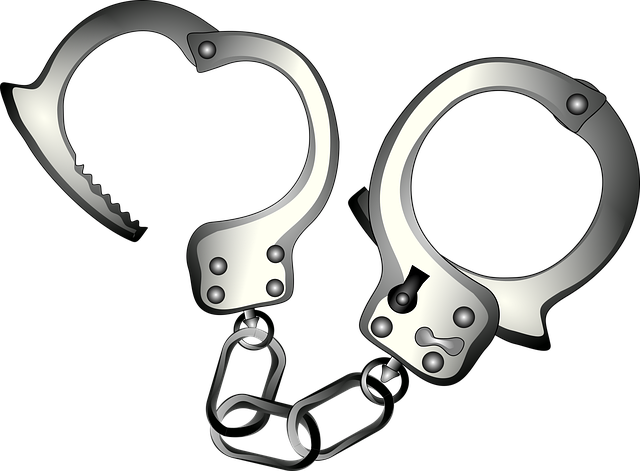Recent criminal law transformations reflect societal progress, technological advancements, and a shift towards equity. Key trends include enhanced victim rights, restorative justice, and digital tool integration in every aspect of practice. Understanding rights is crucial during proceedings, with early legal advice empowering individuals to participate actively. Notable cases guide practitioners through complex legislation, while technology revolutionizes enforcement, administration, and evidence handling in the digital age.
“Dive into the dynamic world of criminal law with our comprehensive guide. Explore recent changes reshaping legal landscapes, understand your rights within criminal proceedings, and uncover notable cases setting precedents. Delve into the evolving role of technology in modern criminal justice—a testament to the intersection of innovation and the law. Stay informed about developments in criminal law, ensuring you’re equipped with knowledge in this vital realm.”
- Recent Changes in Criminal Law: A Comprehensive Overview
- Understanding Your Rights: Navigating Criminal Proceedings
- Notable Criminal Cases Shaping Legal Precedents
- The Role of Technology in Modern Criminal Justice
Recent Changes in Criminal Law: A Comprehensive Overview

Recent changes in criminal law reflect a dynamic and evolving legal landscape, driven by societal shifts, technological advancements, and a commitment to fairness and justice. One notable trend is the increased focus on victim rights and restorative justice, with many jurisdictions implementing laws that prioritize rehabilitation over strict punishment.
Another significant development is the integration of digital technologies into criminal investigations and proceedings. From advanced forensics to remote court hearings, these innovations aim to streamline processes, enhance evidence handling, and improve access to justice. These changes not only update the tools of criminal law but also challenge traditional concepts of venue and witnesses, shaping a more modern approach to crime and punishment.
Understanding Your Rights: Navigating Criminal Proceedings

Understanding your rights is a crucial aspect of navigating complex criminal proceedings. When facing criminal charges, individuals must be aware of their constitutional protections and legal options. The right to remain silent, for example, allows accused persons to avoid self-incrimination. Similarly, the right to an attorney ensures access to legal counsel, which can significantly impact the outcome of a case.
In criminal law, the process involves multiple stages: arrest, booking, preliminary hearing, indictment or information, trial, and sentencing. Each phase requires specific actions and decisions. Seeking legal advice early on can help individuals understand their rights at each step, ensuring they make informed choices. This knowledge empowers them to actively participate in their defense, potentially leading to better outcomes.
Notable Criminal Cases Shaping Legal Precedents

In the dynamic landscape of criminal law, notable cases often serve as pivotal points that shape legal precedents and interpret existing statutes. These high-profile instances, ranging from complex fraud schemes to landmark constitutional challenges, provide crucial insights for practitioners and contribute to the evolution of justice. By scrutinizing the nuances and outcomes of such cases, legal professionals can better navigate the intricate web of criminal legislation.
For instance, recent developments in white-collar crime prosecutions have set new standards for investigatory powers and corporate liability. Similarly, landmark decisions on search and seizure rights have widened access to justice for accused individuals while ensuring the integrity of evidence collection processes. These cases not only highlight the adaptability of criminal law but also underscore its ongoing relevance in addressing societal challenges.
The Role of Technology in Modern Criminal Justice

In today’s digital era, technology plays a pivotal role in shaping modern criminal justice systems. Advanced tools and platforms are revolutionizing the way criminal law is enforced and administered. From robust data analytics to cutting-edge forensics, these innovations enhance investigation capabilities, enabling authorities to gather and analyze evidence more efficiently. For instance, facial recognition software and advanced biometric techniques aid in accurate identification, while blockchain technology ensures secure record-keeping, minimizing fraud and tampering.
Moreover, digital platforms facilitate seamless communication between legal professionals, law enforcement agencies, and courts. Online case management systems streamline procedures, reducing paperwork and delays. Real-time data sharing improves coordination during critical operations, leading to quicker response times and more effective crime prevention strategies. As technology continues to evolve, its integration into criminal law will undoubtedly shape the future of justice, making processes more accessible, transparent, and efficient.
In conclusion, the realm of criminal law is a dynamic and ever-evolving landscape, shaped by recent changes, technological advancements, and landmark cases. By understanding your rights and keeping pace with legal precedents, folks can better navigate the intricacies of the criminal justice system. As we move forward, technology will continue to play a pivotal role in enhancing and revolutionizing how news and info about criminal law is disseminated and applied, ensuring a fairer and more efficient process for all.
